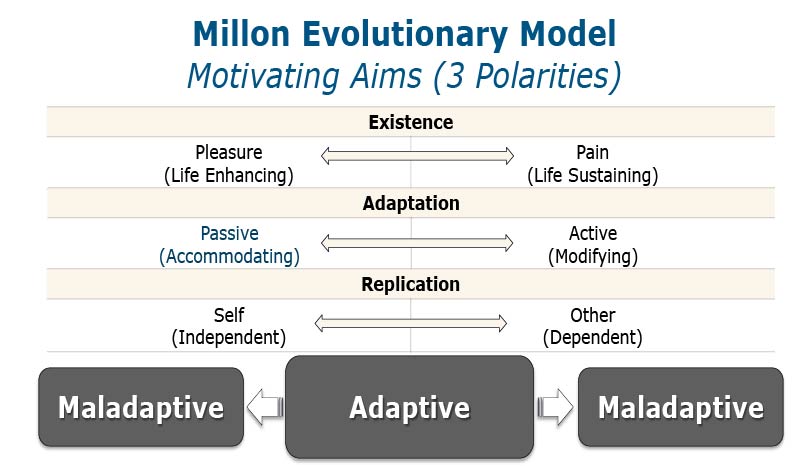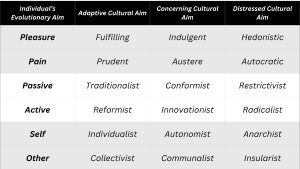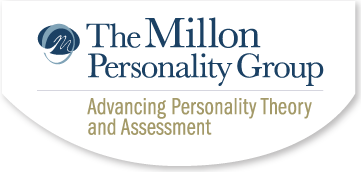As integral as personality is to healthy individual functioning, humans don’t simply exist as a sole entity. We are programmed to coalesce, from our first signs of prenatal individuation, through attachment, and into the social world.

The core components of Millon’s Evolutionary Theory grounds personality in the same principles that shape all living systems. By linking psychological processes to adaptive strategies observed throughout nature, the theory offers both (1) a coherent “theory of the person” for assessment and intervention, and (2) a framework with universal relevance across cultures.
While the core evolutionary motivations directly reflect universal human drives, their expression is filtered through culture. Understanding a personality’s effectiveness therefore requires examining its goodness of fit with the individual’s cultural contexts, including acculturation, intersectionality, and culturally shaped life strategies.
The Three Motivating Aims
Recall that Millon’s model centers on three evolutionary “Motivating Aims,” each expressed as a continuum. Patterns of blending across these dimensions form the basis of personality prototypes. Millon’s personality prototypes—and MCMI-IV Base Rate scales—reflect different combinations along these aims, offering a dimensional read of a person’s core motivational patterns.

Cultural Extensions of the Motivating Aims
The three motivating aims polarities, which outline adaptive/evolutionary imperatives of individuals, may also be mapped onto sociocultural constructs that characterize the norms, values, and adaptive strategies emphasized within a culture. This mapping helps clinicians understand how personality operates within (and reacts to) its cultural ecology.
Operationalized Cultural Extension of Motivating Aims
To reflect the most recent iteration of Millon’s theory and to broaden the framework beyond mainstream Western constructs, an extension of the theory, the Grossman/Ramnath Sociocultural Continua was recently developed.
Millon’s theory evolved to make clearer distinctions among Normal Styles, Abnormal Types, and Clinical Disorder in personality patterns. Similarly, the Grossman/Ramnath extension proposes three sociocultural constructs (parallelling the motivating aims) across three levels of cultural functioning: Adaptive, Concerning, and Distressed.
Operationalized Cultural Extension of Motivating Aims

These expanded dimensions provide clinicians with a structured method to interpret MCMI-IV profiles within cultural context, recognizing that the expression and adaptiveness of a personality pattern depends heavily on its cultural ecology.
